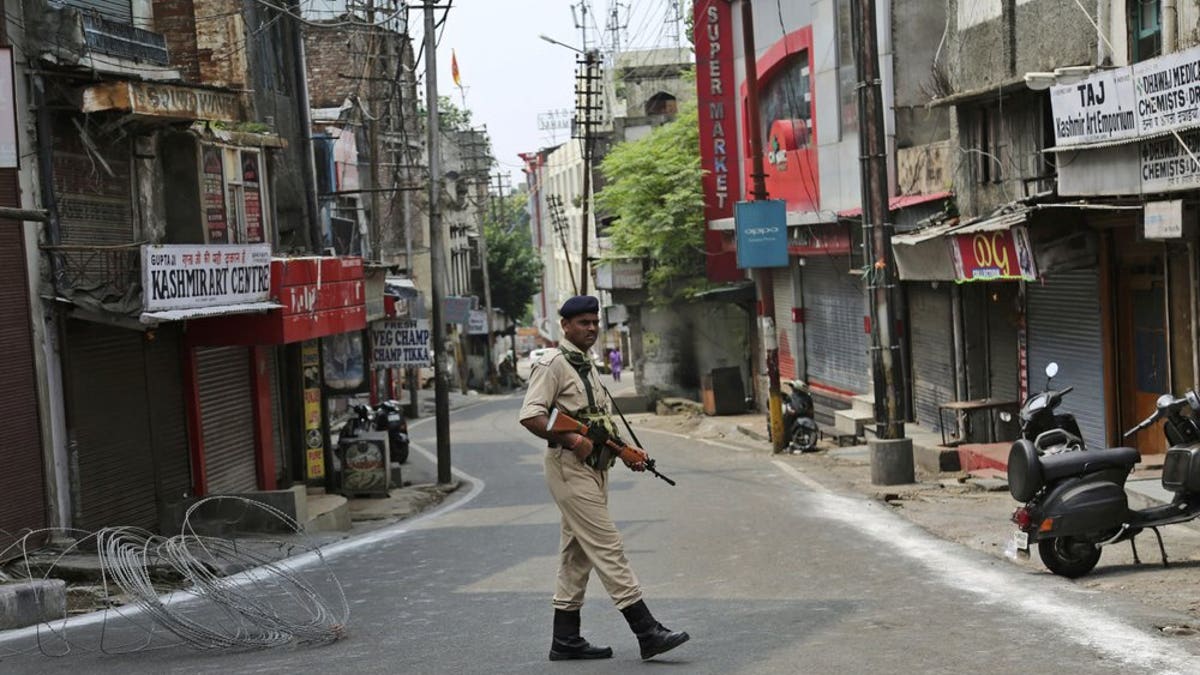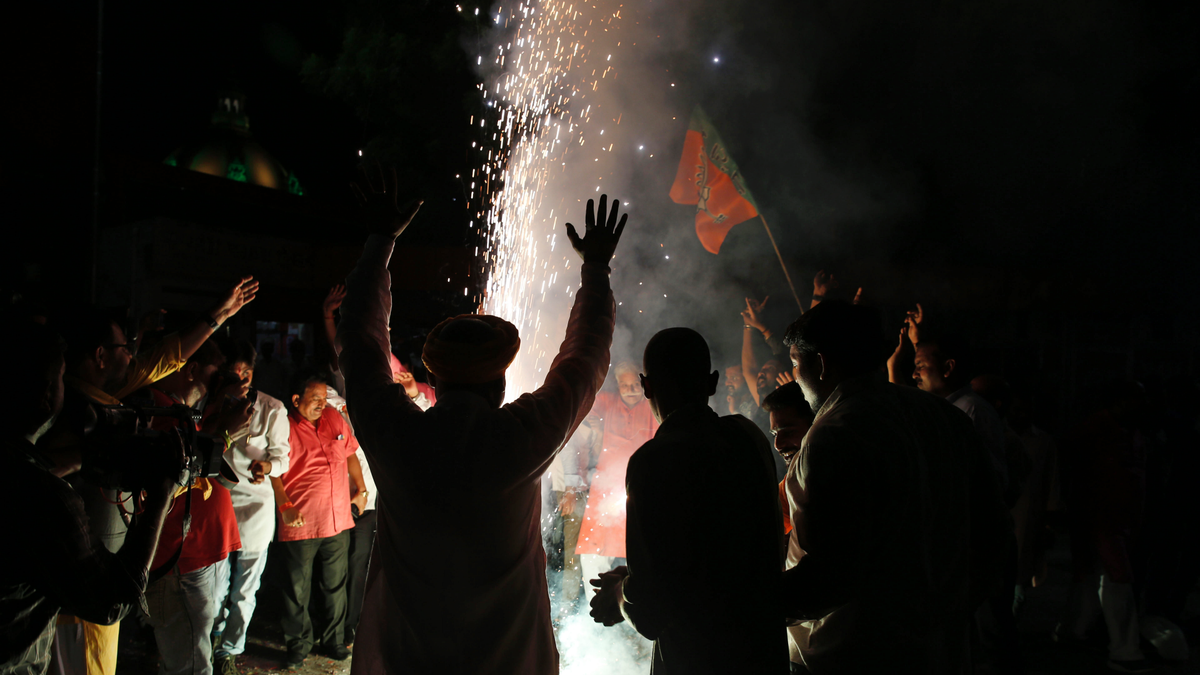Fox News Flash top headlines for August 7
Fox News Flash top headlines for August 7 are here. Check out what's clicking on Foxnews.com
Pakistan decided Wednesday to downgrade diplomatic ties and halt trade with India in response to the Indian government’s move to revoke the Kashmir region’s autonomy and institute India’s rule.
Prime Minister Imran Khan presided over the National Security Committee (NSC) meeting in the wake India’s shock actions regarding Kashmir, a disputed region where both India and Pakistan claim the territory in full.

An Indian paramilitary soldier guards during security lockdown in Jammu, India, Tuesday, Aug.6, 2019. (AP Photo/Channi Anand)
PAKISTAN'S PM WARNS OF SUICIDE ATTACKS, WAR AFTER INDIA ENDS DISPUTED KASHMIR'S SPECIAL STATUS
In addition to suspending bilateral trade with India, the government also decided to review Pakistan-India bilateral arrangements and formally criticize its neighbor at the United Nations in an effort to pressure the Hindu nationalist government to revert its course.
“PM directed that all diplomatic channels be activated to expose brutal Indian racist regime, design and human rights violations,” the government’s statement said.
"PM directed that all diplomatic channels be activated to expose brutal Indian racist regime, design and human rights violations."
Khan warned Tuesday that India’s moves in Kashmir could lead to new suicide bombings and urged the world to take notice of India’s reckless behavior.
“With an approach of this nature, incidents like Pulwama are bound to happen again. I can already predict this will happen,” Khan said, referring to the February terror attack that killed 40 paramilitary police in Pulwama.
INDIA AND PAKISTAN'S FIGHT OVER KASHMIR: A HISTORY OF VIOLENCE AND INSURGENCY
He expressed fears that Kashmiri people, angered over India’s decision to strip the region of its special status, may target Indian security forces, an attack New Delhi may pin on Pakistan.
Kashmir remains on lockdown by the Indian security forces on Wednesday, cutting off access to phones and the Internet, while hundreds of poor migrant workers have begun fleeing the Himalayan region to return to their far-away villages in northern and eastern India.

Supporters of India's ruling Bharatiya Janata Party (BJP) light firecrackers and celebrate the government revoking Kashmir's special status, in Lucknow, India, Tuesday, Aug. 6, 2019. Indian lawmakers passed a bill Tuesday that strips the statehood from the Indian-administered portion of Muslim-majority Kashmir amid an indefinite security lockdown in the disputed Himalayan territory, actions that neighboring Pakistan warned could lead to war. (AP Photo/Rajesh Kumar Singh)
Some said their Kashmiri employers didn’t pay them any salary as security forces began imposing tight travel restrictions over the weekend and asked them to leave their jobs.
Prime Minister Narendra Modi’s Hindu nationalist government submitted the Jammu and Kashmir Reorganization Bill for a vote by India’s lower house of Parliament on Tuesday. The bill was easily approved by lawmakers.
CLICK HERE TO GET THE FOX NEWS APP
The bill strips statehood from Jammu and Kashmir, its only Muslim-majority state, and splits the region into two union territories after revoking its special rights under India’s Constitution.
The measure also lifts a ban on property purchases by nonresidents of Kashmir, paving way for Indians outside the territory to invest and settle there. The local Muslim population has long feared such measures would change Kashmir’s demography, culture and way of life.
The Associated Press contributed to this report.
